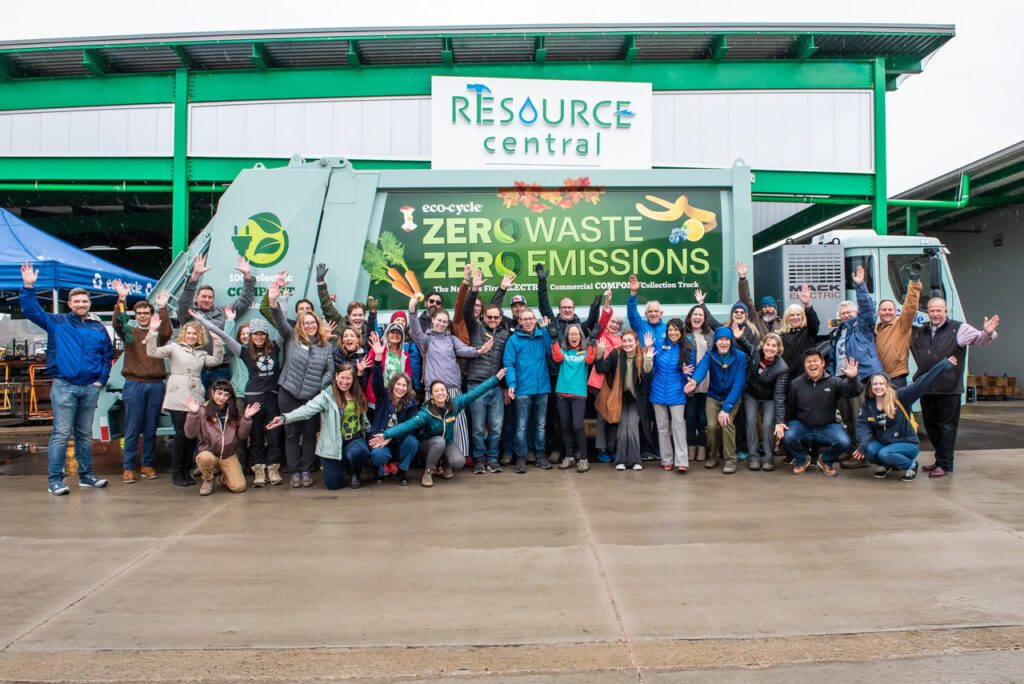Driving Colorado’s Climate Goals: Eco-Cycle’s Electric-Powered Collection Trucks
Eco-Cycle is proud to be leading the transition to electric-powered fleets in the hauling, recycling, composting, and waste industries. This fall, we introduced a fully electric recycling truck to our fleet, thanks to support from Xcel Energy’s EV Accelerate Innovation program. This groundbreaking addition follows our summer 2023 debut of the country’s first commercial-scale electric compost collection truck. We are now two EV trucks in to achieving a future of Zero Waste, Zero Emissions.
Electrifying Colorado’s Fleets: A Climate Imperative
Transportation electrification is a cornerstone of Colorado’s climate action plan. With Governor Polis aiming to put nearly one million electric vehicles on state roads by 2030, fleet operators like Eco-Cycle play a critical role in driving change.
While medium- and heavy-duty trucks comprise just 4% of vehicles nationwide, they account for a staggering 23% of greenhouse gas emissions from transportation. Diesel trucks are notorious for emitting nitrogen oxides and particulate matter, which contribute to air pollution and public health risks. Electric trucks, in contrast, do not generate tailpipe emissions, making them essential for improving air quality in Colorado, where wildfire smoke and ozone pollution often cloud our skies.
Electrifying all trucks in the US would require a 13% increase in electricity use, but the efficiency of electric motors could cut overall energy demand by 71%, according to the Union of Concerned Scientists. At Eco-Cycle, fleet electrification is more than a response to climate targets—it’s a practical solution to reduce pollution and protect public health.
Quiet, Clean, and Solar-Powered Transportation
Our Zero Waste–Zero Emissions commitment doesn’t stop at electric trucks. We’re striving to integrate solar energy into our charging infrastructure to power these vehicles with clean, renewable energy. This ensures our EV trucks have a carbon footprint as close to zero as possible.
Beyond cutting emissions, electric trucks bring another benefit to communities: they’re quiet. Traditional diesel trucks can disrupt neighborhoods throughout the day with recycling and compost pickups. Our electric trucks operate nearly silently, reducing noise pollution for residents while maintaining efficient service.
Leading the Way for Electric Fleets
Transitioning to an electric fleet presents challenges, but our drivers have embraced the change. Initial concerns about range and charging logistics have been outweighed by the benefits of EVs. The team is proud to lead the way, proving that electric trucks are the future of commercial hauling.
Our hauling team leadership isn’t just about operating EVs—they’re ambassadors for them. They share their experiences with other fleet managers, helping to advance the broader adoption of electric vehicles across industries.
Eco-Cycle’s commitment to electrification shows that commercial hauling can evolve into a cleaner, quieter, and more sustainable industry.


























